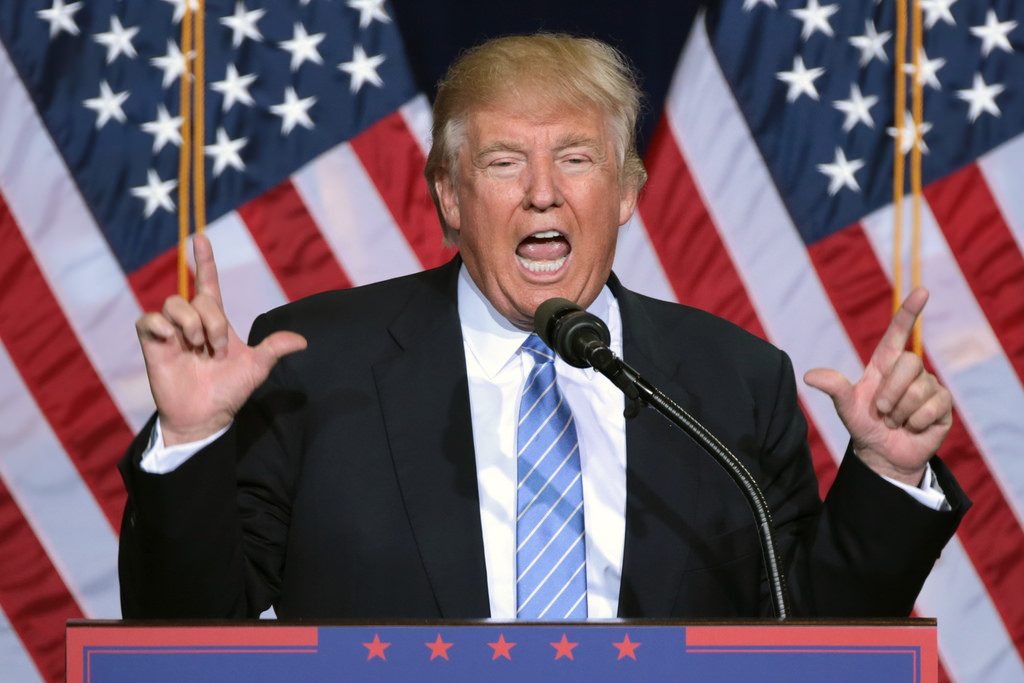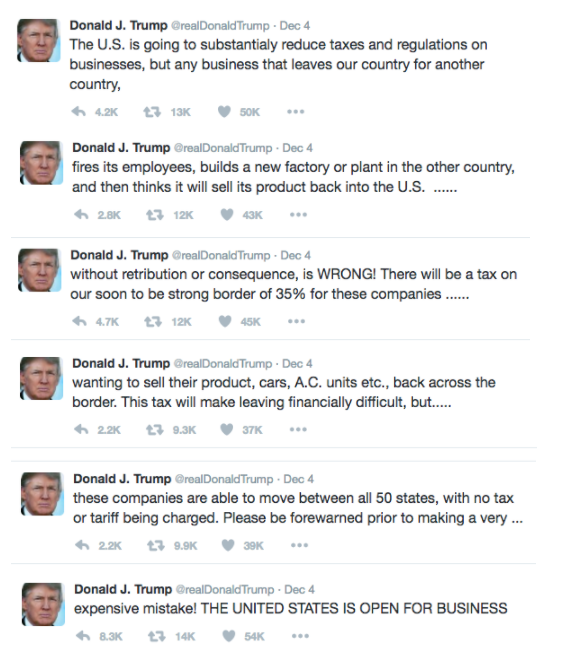
Trump’s tweeting about taxes. What’s going on?
The media has been all in a frenzy over a series of tweets Donald Trump posted this week about how he's going to tax businesses who operate abroad when he comes into power.
His 140-character policy announcements sound simple, but there's some big assumptions and what-ifs behind them.
What's going on here?
Trump, presumably in preparation of his presidency of the USA, is tweeting about his tax policies. Last week he made a deal with a company where the company agreed to keep jobs in the United States if Trump could get them big tax cuts. This week it turns out the company is keeping some jobs, but moving others to Mexico.

Trump’s not happy about that and is calling for a 35 percent tax on companies that move jobs overseas and still try to sell things in the US.
Hold up, let’s just break this down for a minute.
Talk to me about my life – where does this fit in?
If you’re a manufacturing worker in the US, Trump is talking about trying to protect your job. He made a lot of noise about this, but the 35 percent number is one of the more specific things he’s proposed.
For everyone else in the US, what Trump’s talking about could greatly increase the prices of things like clothes and cars that are made outside of the country.
If you don’t live in the United States this could be a big problem for your country. The US buys a lot from other countries. If they start buying less because of big taxes, that will have some serious ripple effects—for example factories in Mexico closing would hurt not just Mexican communities, but also possibly Mexico's trading partners in Central and South America.
Be honest. Where's the economics really coming from here?
A lot of Trump's economics is based on this idea of 'Putting America First', and that's what this is grounded in. It's not necessarily a question of who can produce stuff cheapest or to the highest quality – it's about the fact that he thinks American companies should create American jobs for American people. In other words, the economics is really coming from a patriotic place. Most politicians will put forward a blend of patriotism and efficiency as values in their arguments, but Trump is very much about the former.
Who's making these choices & who do they represent?
Well, this is kind of what's worrying everyone about Trump's ideas. His method of putting forward policies – Twitter – isn't the most rigorous, so people are concerned that these proposals don't actually represent what professional policymakers and economists think would work.
Companies usually want to move jobs out of the US because they can pay people much less in other countries to do similar work. American wages are 4 times bigger than those in Mexico, so it’s not clear how any level of tax could keep jobs from fleeing in the long term.
In terms of the policy itself, the main people he's representing are American manufacturing workers, and their interests – but that excludes millions of others who would probably be negatively affected by this idea, partially Americans who work in the service jobs and would have to pay higher prices for manufactured things.
Is this story in a place people can find it?
In a way, it is – Trump's tweets are being covered by everyone 24/7 (to the point where some journalists are joking he should just tweet 'Aleppo' so people pay a bit of attention to that too). But to get to some of the deeper economics about what these taxes would actually mean for the economy you still have to go pretty far out of your way. That’s a problem.
With stories like these, we hope to provide a more understandable economics – one that's clear, real, transparent, diverse, and available. Let us know how we're doing at hello@ecnmy.org. And if you'd like to get involved in our campaign, get in touch at campaign@ecnmy.org.



